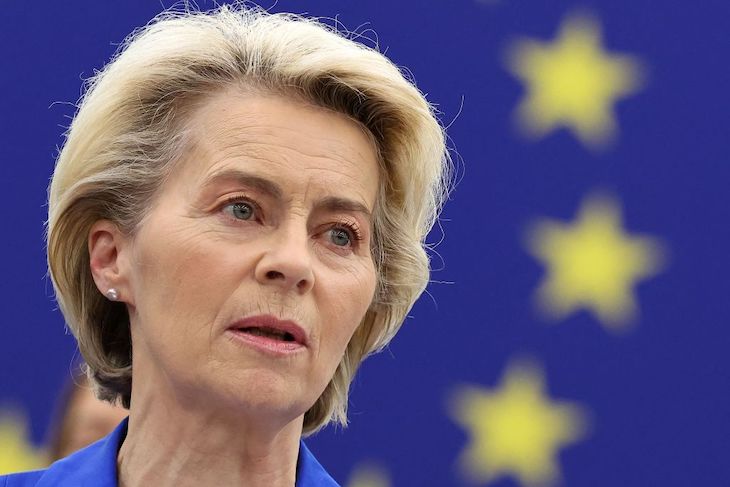European Commission President Ursula von der Leyen has this week put out an official statement that could fairly be described as ‘Wir schaffen das nicht’ – ‘we can’t do it’. Its official title is the rather drier – ‘Work on designing innovative ways to counter illegal migration’ – but you get the drift.
It was back in autumn 2015 that Angela Merkel launched a policy towards undocumented migrants that had huge implications for the entire continent.
‘Wir schaffen das!’ – ‘we can do it’ – she declared, in response to the huge flow of irregular (thus also illegal) migrants heading into the EU, mainly from Syria and surrounding countries. However many people came in to seek refuge in Germany – and therefore, ultimately in its Schengen Area neighbours too – the country would welcome them and cope. Nine years down the line, we have a very different declaration.
At the start of her second term running the Commission, von der Leyen has told her immigration commissioner to ‘steer reflections on operational solutions that will help to counter illegal migration and address the proposals many membersStates have made in this area’. Part of the new approach will involve identifying ‘designated safe third countries’ and ‘the idea of developing return hubs outside the EU’.
The statement also namechecks the start of an Italy-Albania deal for holding and processing up to 36,000 asylum seekers a year in the Balkan country. Hanging over it, unreferenced, is the spectre of public opinion in many EU countries rapidly hardening against mass migration from Asia and Africa.
In the Netherlands, Geert Wilders got the biggest vote share in a general election last year. In Germany, the hardline AfD is scoring spectacular successes in state-level elections. In France, Marine Le Pen is on course to become the next President of the republic. In Italy, Giorgia Meloni is already installed as prime minister and enacting tough policies to repel illegal migrants.
In Denmark and Sweden, nominally centrist regimes are pushing ‘fit in or go home’ messages at largely Muslim migrant populations in a way that would have been unthinkable a decade ago. In Poland, Donald Tusk is on the brink of suspending the whole asylum process.
The designation ‘MENAPT’ – applied to those with origins in the Middle East, North Africa, Pakistan and Turkey – has entered European public consciousness when it comes to official data on crime, labour market participation and welfare dependency. And the story told by the data on these metrics and in respect of such populations is not a good one.
In short, there is a paradigm shift in progress. The ultra-idealistic Merkel approach has been seen to fail, and centrist technocrats everywhere are seeking accommodations with electorates in a desperate bid to fend off the populist right.
Everywhere, that is, apart from the United Kingdom where the new government has redoubled the political establishment’s subservience to the nebulous concept of ‘international law’, pulled the plug on its predecessor’s Rwanda removals plan and declared that it will never leave the European Convention on Human Rights or its supervisory court.
There is a paradigm shift in progress
This latter consideration is a live issue in the ongoing Conservative party leadership contest. Robert Jenrick has committed to a policy of getting out of the whole ECHR framework. Kemi Badenoch has called for time to be spent on drawing up a robust new policy to deliver secure borders and the ability to deport illegal entrants, which will be relevant to the circumstances prevailing in five years’ time.
Some say that’s dodging a difficult choice. Yet there is no doubt that things are changing fast across the EU. In the blink of an eye, Britain has gone from being the whipping boy of liberal media and pro-migration NGOs alike, to the only major European country supporting a status quo that renders borders largely illusory.
Keir Starmer and Home Secretary Yvette Cooper won’t make Merkel’s mistake of saying the quiet part out loud. But for all their ‘smash the gangs’ rhetoric, they are presiding over their own version of her failed policy: sky-high asylum grant rates, tiny numbers of removals, extensive welfare support – including access to scarce social housing – the suppression of data about migrant outcomes by country of origin and almost zero pressure to integrate.
We were once dubbed the ‘sick man of Europe’. We’re the ‘weak man of Europe’ now.








Comments